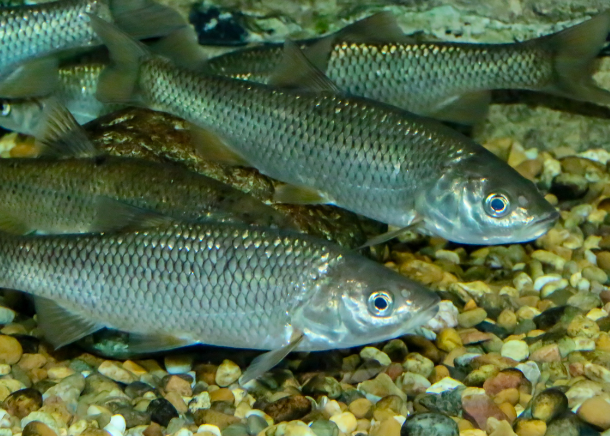Summary:
Hybridization, or offspring produced between different species, is more common than previously thought and has shaped genomes across the tree of life, including our own. There has been a longstanding debate about the genetic and evolutionary importance of hybridization because it can have both beneficial and deleterious effects. By creating new phenotypes, hybridization can aid adaptation and even trigger adaptive radiation, but it can also drive extinction by mixing incompatible genes that have deleterious effects on hybrids. Past work has proposed that in stressful environments, the benefits of hybridization may outweigh the costs, but the generality of this hypothesis has not been rigorously evaluated. How this tug-of-war between the positive and negative impacts of hybridization resolves is unknown and is an outstanding puzzle in genetics, ecology and evolutionary biology. Moreover, understanding these dynamics has become more pressing as rates of hybridization have increased due to anthropogenic disturbances and the stresses of rapidly changing environments. Combining expertise from a geneticist, ecotoxicologist, bioinformatician and mathematician, we will tackle this fundamental question by characterizing the interaction between genomes and their environment in two systems of hybridizing fish (Xiphophorus and Squalius). To dissect how hybrid genomes respond to multivariate stressors, we will infer the genetic basis of the response to environmental stress in the parental species and their hybrids, combining environmental and genomic data from natural populations with cell culture experiments under controlled conditions (Aims 1 and 2). To characterize the intrinsic costs of hybridization we will develop new bioinformatic methods to identify hybrid incompatibilities from genomic data (Aim 3). We will integrate results to build theoretical eco-evolutionary models to predict the evolutionary consequences of hybridization (Aim 4). With our interdisciplinary approach, combining innovative experimental setups, new methods, and theory, we will quantify in unprecedented detail the benefits and costs of hybridization, providing tools that can be applied to other systems. Together, this work will reveal the genetic and evolutionary consequences of hybridization and allow us to predict its impacts in our changing world.
Funding Institution:
Human Frontier Science Program
Partners:
Molly Schumer (Standford University, USA); Claudia Bank (IEE, University of Bern) and Chelsea Rochman (University of Toronto, Canada)
Website






